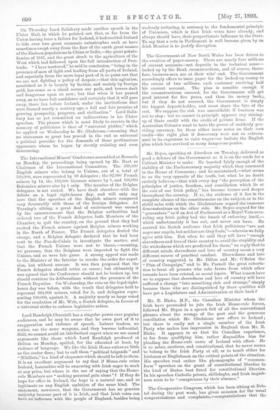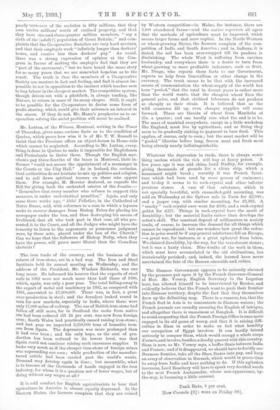The Co-operative Congress, which has been sitting at Bris- tol
during the past week, has given occasion for the usual congratulations and complaints,—congratulations that the yearly turn-over of the societies is fifty millions, that they own twelve millions' worth of realised property, and that they have one-and-three-quarter million members, say a sixth of the [adult Pi population of Great Britain;" and com- plaints that the Co-operative Societies are very hard masters, and that their employes work "infinitely longer than dockers' hours, and receive leas than dockers' pay." As usual, there was a strong expression of opinion at the Con- gress in favour of making the employes feel that they are " part of the movement ; " but we have heard the same story for so many years that we are somewhat hopeless as to the result. The truth is that the members of a Co-operative Society are masters in fact and feeling, and find it almost im- possible to act in opposition to the instinct which teaches men to buy labour in the cheapest market. The competitive system, though driven out with a pitchfork, is always tending, like Nature, to return in some of its many shapes. Still, it ought to be possible for the Co-operators to devise some form of profit-sharing, which would give their salesmen an interest in the stores. if they do not, Mr. Mann's prophecies as to co- operation solving the social problem will never be realised.



































 Previous page
Previous page